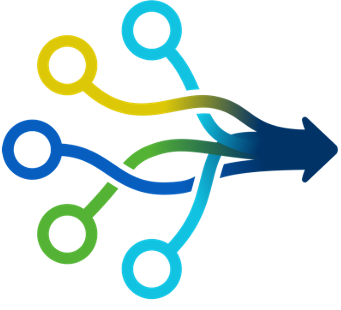The Environmental Health Language Collaborative (EHLC) is a community for anyone who collects, analyzes, or manages environmental health sciences (EHS) data and wants to ensure the data is formatted using a common EHS language to promote data discovery, interoperability, and reuse.
As a community-driven and participatory effort, EHLC provides a collaborative platform for EHS professionals to discuss, develop, and apply approaches for speaking the same language.
Our Story
Despite numerous language and data standard efforts in existence, EHLC was started to create a forum specific to the needs of the environmental health sciences community to:
- Ensure the EHS community has a voice in developing new standards and recommendations; especially in EHS-adjacent fields such as earth sciences, ecology, clinical, behavioral sciences, etc.
- Identify opportunities within those efforts to extend them to meet new needs or uses
- Raise awareness of existing efforts to promote their adoption and to reduce redundancy
- Pinpoint gaps and work on developing solutions
- Provide a central space to engage the environmental health community
Two seminal workshops (in 2014 and 2019) began identifying the challenges and needs in the environmental health sciences field and were productive in defining useful next steps. EHLC was formed to provide a sustainable effort to build on those activities.
Our Vision

To enhance the value of environmental health sciences data for translation and knowledge discovery to improve personal and public health.
Our Mission
To advance integrative environmental health research by promoting access, use, and harmonization of data through interoperable terminologies and best practices.
Our Goals and Roles
To meet the mission, the Collaborative has three high-level strategic goals. EHLC serves to support and promote the development and application of harmonized language solutions to address the community’s identified gaps and needs.
Goal 1: Develop Language-Based Solutions
- Foster community-based extension and development of language approaches (e.g., vocabularies, terminologies, and ontologies)
- Develop and promote methods and tools for applying a common language
EHLC Role: Forum to Coordinate and Collaborate
The EHLC community serves as a central forum to define use cases and gaps, coordinate harmonization activities, prioritize activities, and design and develop common EHS language strategies to enable data querying, sharing, and interoperability.
Goal 2: Implement Language-Based Solutions
- Apply language standards and best practices for accurate environmental health data and knowledge representation
EHLC Role: Foster Adoption
EHLC will serve as a community hub to identify and promote incentives for adoption as well as offer a resource portal to raise awareness of terminologies, standards, and other existing language resources.
Goal 3. Advocate for the Value of Harmonized Language
- Cultivate a vocabulary-aware environmental health community through training and education
EHLC Role: Community of Practice Space
The EHLC community serves as a place where members can exchange information, ideas, and expertise and be a channel for advancing the appreciation for and use of language approaches.
Our Values
The following values guide EHLC members’ thinking, actions, decisions, and products as they collaborate to achieve EHLC’s vision, purpose, and strategic goals. They define acceptable behavior for members and expectations for EHLC products.
| We are… | We will… |
|---|---|
| Collaborative | Foster interdisciplinary dialogue, integrate many perspectives into outcomes, and work together to resolve conflicts and achievement of shared goals. |
| Community-driven | Recognize and embrace that active community participation is essential to identify the community’s needs and develop fit-for-purpose solutions to address those needs. |
| FAIR | Align outputs of EHLC activities with the FAIR principles of being findable, accessible, interoperable, and reusable. |
| Broad | Seek to promote balanced representation of its membership and stakeholder communities to ensure variety of opinions, expertise, and domain representation. |
| Open | Disseminate publicly, share openly, and make freely available the outputs of EHLC activities and efforts. |
| Respectful | Support collegial discourse that is open and listen to everyone’s voices and acknowledge contributions. |
| Transparent | Ensure trustworthiness of community outcomes through open communication, documentation, processes, and standards. |



